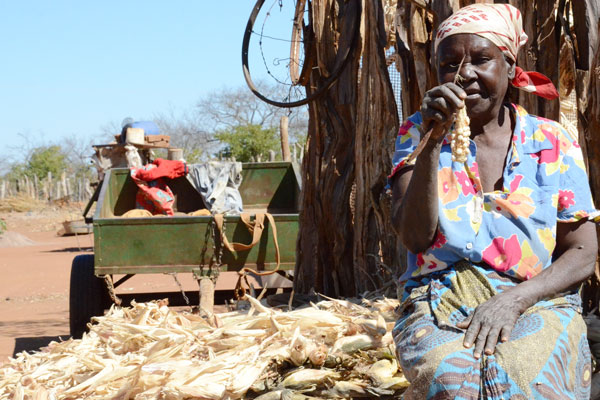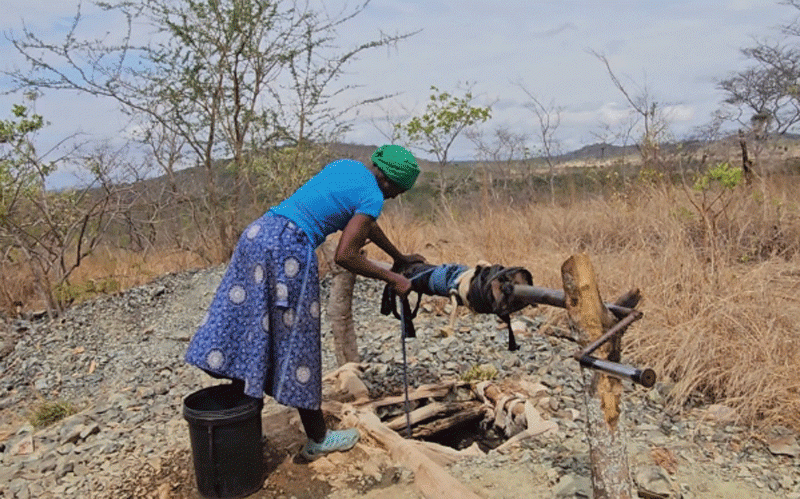
BY MTHANDAZO NYONI
THE World Food Programme (WFP), in partnership with DanChurchAid and ORAP, is empowering people in urban areas with farming and business skills through its urban resilience programme aimed at enhancing resident’s food security over the longer term.
The programme, being piloted in the Mzilikazi and Phelandaba districts of Bulawayo, has to date, benefited 700 households who have been empowered with farming and business skills such as cuniculture, poultry, mushrooms, horticulture among others.
DanChurchAid coordinator Olwin Manyanye told Sunday Southern Eye in an interview during a media tour that they were also supporting those who were into buying and selling business.
“Most of the beneficiaries being supported are informal traders and the lockdown restrictions affected their buying and selling ventures,” Manyanye said.
“They could no longer travel to order their stock. So the urban resilience then came in.
“We are piloting this in Bulawayo, in the Mzilikazi district.
“So with the urban resilience, because we are piloting this project, we are targeting people that either have started some skill, have some knowledge, experience or have some equipment that has to do with a particular enterprise that they want to be involved in.”
- Chamisa under fire over US$120K donation
- Mavhunga puts DeMbare into Chibuku quarterfinals
- Pension funds bet on Cabora Bassa oilfields
- Councils defy govt fire tender directive
Keep Reading
Manyanye said they partnered with government stakeholders such as the ministry of Women Affairs and Agritex to assist in the technical enterprises.
“The ministry has been assisting with training on detergent making, washing powder while Agritex has been supporting with the technical training in livestock for our cuniculture, poultry and the horticulture as well as the mushroom projects,” she said.
“So for resilience, we are around 700 households that are being supported. This is inclusive of the ones that do buying and selling.
“So for the other technical projects, we also supported with starter-kits because due to Covid, some of them ended up using capital for their business.
“They were not able to restart their businesses, so we supported them.”
For instance, for the cuniculture enterprises, each beneficiary was supported with a buck and a doe and pellets, while poultry were given chicks stress packs and starter mesh.
“Then the rest of the feeds, this is now input from the beneficiaries themselves so that they own the project.
“They also invest in the project. This is where we are, we recently started.
“It’s just about two and a half months old now but what we envisage from that and also through the monitoring that we are doing and with support from government extension services is that they grow these enterprises and we also link them to viable markets where they will be able to sell.”
“We are also working with Empretec.
“ It’s quite a holistic project and we would love to see how it grows and see its fruits at the end of the year,” she said.
One of the programme beneficiaries, Precious Tachiona (23) said the programme was very useful and she looks forward to growing her cuniculture project.
“I received two rabbits—one doe and a buck—and a 10kg sack of pellets,” Tachiona said.
“Once my rabbits reach maturity, I am hoping to breed and sell them.”
In future, she plans to open a butchery in Bulawayo where she would sell white meat including rabbits and fish.
“Rabbit droppings make very good manure and also the urine is very good for plants,” she said.
“It’s a big project. If you take care of them (rabbits) well with proper hygiene, they give birth to about 15 bunnies at a time.”
WFP in partnership with DanChurchAid is also assisting 29 069 food-insecure urbanites in the Mzilikazi and Phelandaba districts of Bulawayo through electronic vouchers and 5000 with cash transfers.
According to the 2020 Urban ZimVAC report, 2.4 million urbanites in Zimbabwe are food insecure.
This figure represents almost half of Zimbabwe’s total urban population.
A household income survey conducted by the World Bank and the Zimbabwe National Statistics Agency (ZimStat) in 2020 to assess the socio-economic impact of Covid-19 concluded that urban households were severely impacted by the pandemic resulting in loss of sources of livelihood and food insecurity.
WFP is currently providing food assistance to over 320 000 people in Zimbabwe.









